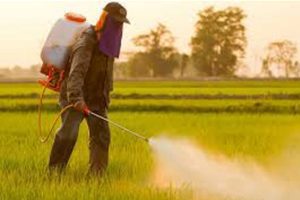
Pesticide Exposure Suspected In Parkinson’s Disease. Although the causes of Parkinson’s are not well understood, it has long been suspected that environmental factors play a large role. Parkinson’s disease, first described in the early 1800s by British physician James Parkinson as “shaking palsy,” is among the most prevalent neurological disorders. In a recent article in Scientific […]

Pesticide Exposure Suspected In Parkinson’s Disease. Although the causes of Parkinson’s are not well understood, it has long been suspected that environmental factors play a large role.
Parkinson’s disease, first described in the early 1800s by British physician James Parkinson as “shaking palsy,” is among the most prevalent neurological disorders. In a recent article in Scientific American, “According to the United Nations, at least four million people worldwide have it; in North America, estimates run from 500,000 to one million, with about 50,000 diagnosed every year. These figures are expected to double by 2040 as the world’s elderly population grows; indeed, Parkinson’s and other neurodegenerative illnesses common in the elderly (such as Alzheimer’s and amyotrophic lateral sclerosis) are on their way to overtaking cancer as a leading cause of death. But the disease is not entirely one of the aged: 50 percent of patients acquire it after age 60; the other half is affected before then. Furthermore, better diagnosis has made experts increasingly aware that the disorder can attack those younger than 40.
“As its 19th-century name suggests and as many people know from the educational efforts of prominent Parkinson’s sufferers such as Janet Reno, Muhammad Ali and Michael J. Fox the disease is characterized by movement disorders. Tremor in the hands, arms and elsewhere, limb rigidity, slowness of movement, and impaired balance and coordination are among the disease’s hallmarks. In addition, some patients have trouble walking, talking, sleeping, urinating and performing sexually.”
A major cause may be pesticide exposure. According to research published in Annals of Neurology, people who have been exposed to pesticides are 70 percent more likely to develop Parkinson’s disease than those who haven’t. The results suggest that any pesticide exposure, whether occupationally related or not, will increase a person’s risk of the disease. This means that using pesticides in the home or garden may have similarly harmful effects as working with the chemicals on a farm or as a pest controller.
The new study provides the strongest evidence to date of the link between pesticide exposure and Parkinson’s. The work included over 143,000 men and women who completed extensive lifestyle questionnaires beginning in 1982, and follow-up surveys through 2001. All subjects were symptom-free at the beginning of the project, when they were asked about their occupation and exposure to potentially hazardous materials. Since then, 413 of them have developed confirmed cases of Parkinson’s, with a greater incidence of the disease in those who spent time around pesticides. “Low-dose pesticide exposure was associated with a significant increase in risk for Parkinson’s disease,” says lead author Alberto Ascherio of the Harvard School for Public Health. “I think this is one reason to be careful about using pesticides in general.”
Although the causes of Parkinson’s are not well understood, it has long been suspected that environmental factors play a large role. Animal studies have shown that chemical compounds commonly used as pesticides can cause a degeneration of dopamine-producing neurons. In Parkinson’s, a shortage of dopamine causes the disease’s characteristic motor abnormalities, including muscle tremors and muscle rigidity. Previous small-scale human studies had suggested a link between pesticides and Parkinson’s, but this new study is the first to establish a clear correlation in a large patient population.
The researchers also looked for links between Parkinson’s and other environmental contaminants, including asbestos, coal dust, exhaust, formaldehyde and radioactive material. They found no correlation between the disease and any of the materials besides pesticides, however. Because of the design of the questionnaires, the study was not able to determine how the frequency, duration, or intensity of pesticide exposure affected the incidence of Parkinson’s. The next step, according to Ascherio, is to figure out which class of chemicals is actually causing the disease, so that people can reduce their exposure. Karen Schrock, Johns Hopkins University.
So far researchers and clinicians have found no way to slow, stop or prevent Parkinson’s. Although treatments do exist – including drugs and deep-brain stimulation – these therapies alleviate symptoms, not causes. In recent years, however, investigators have linked proteins to genetic underpinnings of the disease. Such findings are feeding optimism that fresh angles of attack can be identified.
Pesticides kill plants and insects; it takes no leap of faith to conclude that they might do something to humans.
The personal injury attorneys at Parker Waichman LLP offer free, no-obligation case evaluations. For more information, fill out our online contact form or call 1-800-YOURLAWYER (1-800-968-7529).


